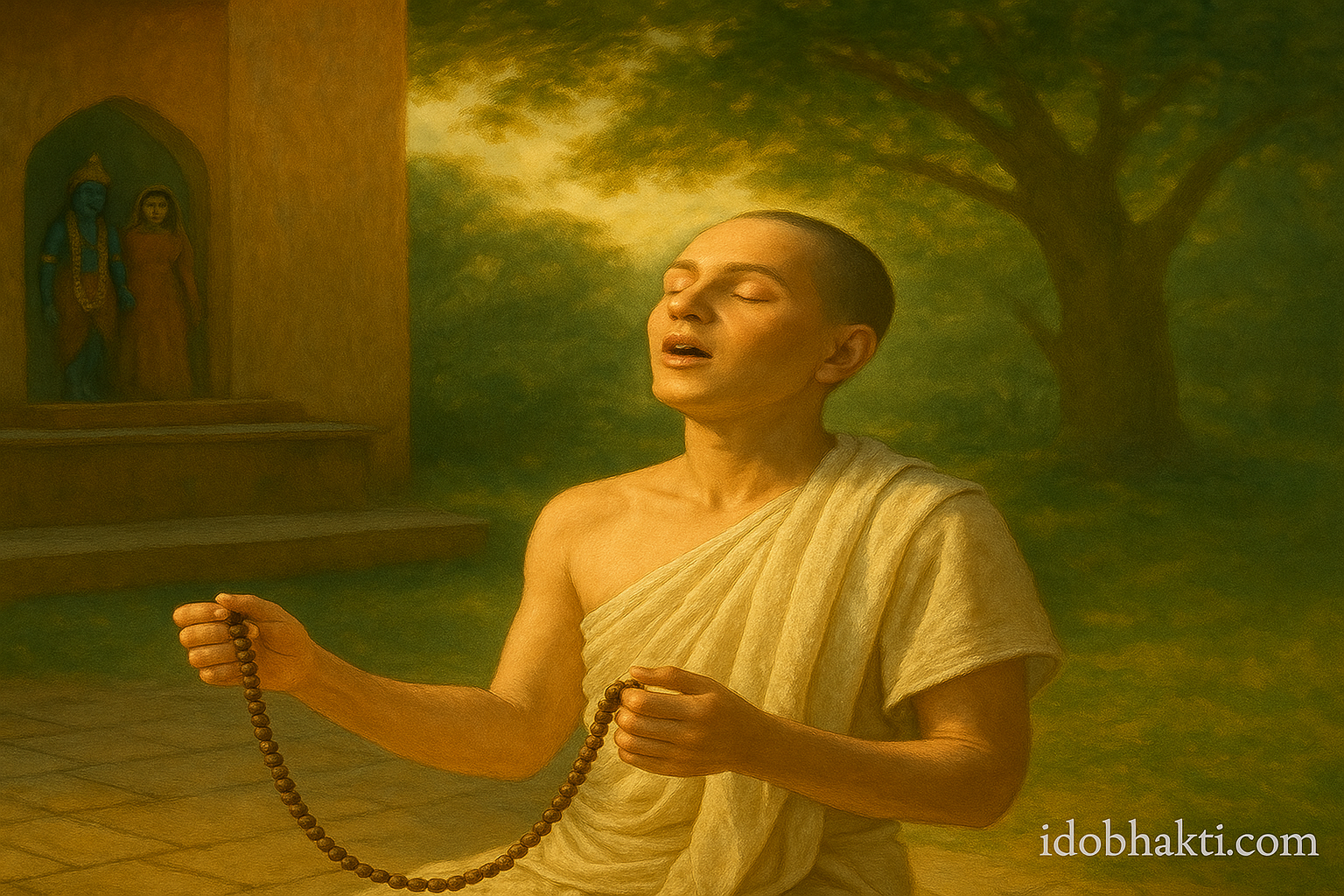




Lessons from the Bhagavad Gita That Will Change Your Life
Among all the spiritual texts in the world, the Bhagavad Gita stands unique — not just as a scripture, but as a timeless conversation between God and the soul, a dialogue that reaches across centuries, cultures, and struggles.

Whether you’re a student, a parent, an entrepreneur, or a seeker wandering through the spiritual wilderness — the Gita has something to say to you.
What follows isn’t a scholarly breakdown of Sanskrit. This is about real-life wisdom — lessons that can transform your inner world, shape your purpose, and offer peace in times when nothing else makes sense.
1. You Are Not the Body — You Are the Soul
The Gita’s most liberating truth comes early in the conversation: you are not this perishable body. You are the eternal, indestructible soul (atma).
"For the soul there is neither birth nor death at any time. He is unborn, eternal, ever-existing and primeval. He is not slain when the body is slain."
— Bhagavad Gita 2.20
How would your life change if you stopped identifying with your failures, looks, job title, or age?
This lesson pulls us out of anxiety and places us in reality: we are spiritual beings on a human journey, not the other way around.
2. Do Your Duty — But Let Go of the Outcome
Modern life tells us: success = results. But Krishna teaches Arjuna a radically different formula — focus on effort, not on outcome.
"You have a right to perform your prescribed duty, but you are not entitled to the fruits of your actions. Never consider yourself the cause of the results of your activities."
— Bhagavad Gita 2.47
This one verse can relieve mountains of stress.
It tells us: Do your best. Leave the rest to Me. When we release control over the result, we act with clarity, humility, and peace — instead of fear and pride.
3. The Mind Is a Friend — or Your Worst Enemy
Why do we struggle with negativity, self-doubt, procrastination? Because the mind, when uncontrolled, becomes our greatest enemy. But when trained, it can be our most powerful ally.
"For one who has conquered the mind, the mind is the best of friends; but for one who has failed to do so, the mind will remain the greatest enemy."
— Bhagavad Gita 6.6
The Gita doesn't just diagnose the problem — it gives the cure: regulate the senses, control desires, and anchor your thoughts in Krishna.
4. True Happiness Is Within — Not in the External World
So much of our time is spent chasing external pleasures — money, approval, relationships, comforts. But the Gita offers a higher definition of happiness: the joy that comes from inner connection with the Divine.
"One whose happiness is within, who is active and rejoices within, and whose aim is inward — is the perfect mystic. He is liberated in the Supreme."
— Bhagavad Gita 5.24
This doesn’t mean you give up life’s pleasures — it means you stop being dependent on them.
When you learn to draw joy from your relationship with Krishna, no outer loss can touch your inner peace.
5. Surrender Is Strength — Not Weakness
At the end of the Gita, Krishna doesn’t hand Arjuna a sword or a strategy. He offers something far deeper: surrender.
"Abandon all varieties of religion and just surrender unto Me. I shall deliver you from all sinful reactions. Do not fear."
— Bhagavad Gita 18.66
Surrender here doesn’t mean passivity.
It means trusting the divine intelligence that guides this universe — recognizing that Krishna knows our journey better than we do.
When we surrender, we stop carrying life alone.
We walk forward with the strength of grace.
6. Every Soul Is Dear to Krishna
One of the most moving insights of the Gita is this: Krishna is not distant. He is not judgmental. He is not looking for perfect followers — He is looking for loving hearts.
"Even if one commits the most abominable actions, if he is engaged in devotional service, he is to be considered saintly because he is properly situated in his determination."
— Bhagavad Gita 9.30
No matter how broken you feel, no matter how far you think you’ve fallen — Krishna is never far.
His love is not based on merit, but on surrender. He sees our efforts, our struggles, and our sincerity — even when others don’t.
Final Reflections: A Divine Conversation That Never Ends
The Gita wasn’t spoken to scholars.
It was spoken to a warrior — on a battlefield, overwhelmed with doubt, fear, and moral conflict. Just like many of us.
Its teachings are not abstract theories — they are life lessons, divine truths, and eternal answers for anyone who is struggling, seeking, or simply longing to live with more meaning.
You don’t need to memorize Sanskrit or become a monk to live the Gita.
You just need a sincere heart, an open mind, and the courage to let Krishna in.
"And of all yogis, the one with great faith who always abides in Me, thinks of Me within himself, and renders transcendental loving service to Me — he is the most intimately united with Me in yoga and is the highest of all."
— Bhagavad Gita 6.47
Let these teachings guide you.
Let them become your compass when the world gets confusing.
Let them change your life — not just in thought, but in action.
Read. Reflect. Live the Gita.
Popular Tag
Related Posts

Chant. Meditate. Repeat: A Daily Guide to Krishna Consciousness

How to Celebrate Ekadashi: A Beginner’s Devotee Guide

Top 10 Krishna Bhajans for Every Festival Playlist
How to Stay Devoted in a Distracted World
